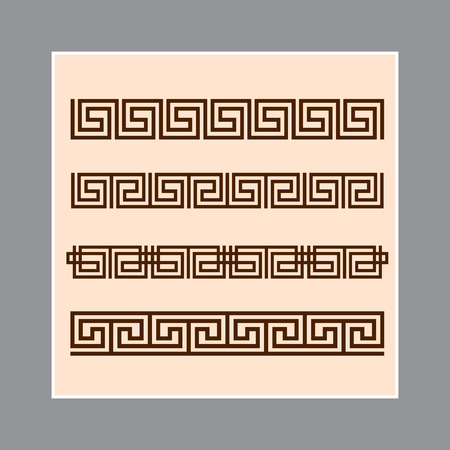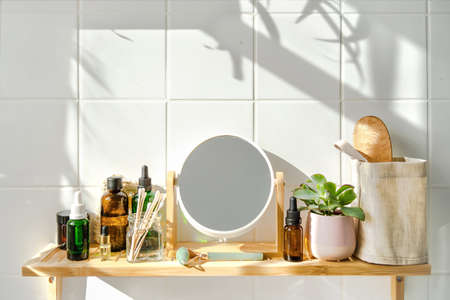Introduction to Feng Shui and British Design
Feng Shui, the ancient Chinese art of spatial arrangement, seeks harmony between individuals and their environments by balancing the flow of energy, or chi. Its guiding principles—such as the interplay of the five elements, the importance of clear pathways, and the strategic placement of objects—have influenced interiors across the globe. In Britain, where tradition meets a flair for modern refinement, these time-honoured concepts find surprising resonance. British interiors are celebrated for their layered textures, historical motifs, and an innate respect for natural light—all qualities that align seamlessly with Feng Shui’s core tenets. By exploring how mirrors, a staple in both Eastern philosophy and Western décor, can be thoughtfully positioned within British homes, we unlock new dimensions of comfort and elegance while honouring cultural heritage. This harmonious blending of ancient wisdom and classic British aesthetics creates spaces that are not only visually pleasing but also energetically balanced.
2. Ideal Locations for Mirrors in a British Home
Placing mirrors thoughtfully can enhance the flow of energy, or chi, within your British home, while also making the most of its unique architectural characteristics. Traditional British interiors often feature compact spaces, ornate fireplaces, bay windows, and narrow corridors—all of which influence optimal mirror placement according to Feng Shui principles. Here’s a breakdown of the best locations for mirrors, tailored to the classic and contemporary British home:
Entryways and Hallways
In many British homes, entryways tend to be modest and may lack natural light. Placing a mirror on a side wall (not directly opposite the front door) can brighten this area and create an inviting first impression. According to Feng Shui, avoid positioning mirrors directly facing the main entrance as this is believed to reflect positive energy out of the house rather than drawing it in.
Living Rooms
The living room serves as a social hub in most British households, often featuring a prominent fireplace or mantelpiece. Hanging a mirror above the mantel not only pays homage to traditional British design but also helps circulate energy throughout the room. If your living room benefits from large sash or bay windows, position mirrors to reflect outdoor greenery or natural light into darker corners—this balances the atmosphere and supports wellbeing.
Corridors and Staircases
Narrow corridors and staircases are common features in Victorian and Edwardian homes. To open up these confined spaces, install slim, vertical mirrors along one side of the wall. This visually expands the passageway and prevents stagnant energy from accumulating.
Best Mirror Locations at a Glance
| Area | Recommended Placement | Feng Shui Benefit |
|---|---|---|
| Entryway | Side wall, not facing door | Welcomes energy, avoids loss of chi |
| Living Room | Above mantel or opposite window (not doors) | Circulates positive energy & amplifies light |
| Corridor/Staircase | Side wall along passage | Expands space & encourages flow |
| Dining Room | Wall reflecting table (never door) | Doubles abundance & conviviality |
| Bedroom | Avoid facing bed or door directly | Promotes restful sleep & harmony |
The strategic placement of mirrors not only aligns with Feng Shui but also respects the heritage features of British interiors—from high ceilings to intricate mouldings. By embracing these guidelines, you can foster both style and serenity throughout your home.

3. Where Not to Place Mirrors: Common Mistakes
While mirrors can amplify light and create a sense of space, improper placement can bring discord both in Feng Shui and in the day-to-day experience of British homes. According to Feng Shui, certain locations are best avoided as they may disrupt the flow of positive energy—or “qi”—and even cause practical discomfort.
Facing the Front Door
One classic Feng Shui faux pas is placing a mirror directly opposite the main entrance. This arrangement is believed to reflect good energy straight back out of the house, preventing it from nourishing your home. In many British terraces or Victorian semis, where entryways are compact, this setup is tempting to enlarge the space—but doing so may inadvertently invite restlessness or instability into your domestic life.
Bedrooms: A Disturbance to Rest
Mirrors facing the bed are discouraged in Feng Shui, as they are said to disturb restful sleep and intimacy. From a practical perspective, waking up to your own reflection in the middle of the night can be unsettling. In British homes, where bedrooms are often modestly sized, it’s common to place wardrobes with mirrored doors directly opposite beds—this is best avoided for peace of mind and better rest.
Reflecting Clutter or Unfavourable Views
Avoid situating mirrors where they reflect cluttered corners, bins, or untidy garden views—mirrors double what they reflect. In traditional British interiors, hallways or under-stair storage nooks can become visual pitfalls when mirrored. Instead of enhancing beauty, you risk magnifying disorder.
Kitchens and Dining Rooms
Feng Shui suggests caution with mirrors in kitchens, especially if they reflect hobs or sinks, as this combination of fire and water elements may symbolise conflict. In British kitchen-diners—often open plan—think twice before hanging a mirror that bounces mess or washing-up areas back into view during meal times.
Bathrooms: Privacy and Energy Flow
Although bathrooms benefit from natural light, placing mirrors directly opposite toilets or entrances can be jarring and energetically draining according to Feng Shui tradition. In older British houses with narrow water closets, keep mirrors above sinks rather than facing doors for a harmonious balance of privacy and style.
By being mindful of these common mistakes and considering both cultural wisdom and local British living habits, you’ll foster a more balanced—and beautiful—home environment.
4. Mirror Styles and Frames: A Matter of Taste and Energy
When it comes to integrating mirrors into British interiors, both the style and the frame play crucial roles—not just in aesthetics, but also in maintaining the principles of Feng Shui. The British home is often a blend of tradition and modernity, from Georgian townhouses with ornate cornicing to contemporary flats with minimalist finishes. Selecting the right mirror can subtly echo these quintessential themes while ensuring the flow of positive energy, or qi, throughout your living space.
The Role of Frames in Feng Shui
In Feng Shui, frames are more than mere decoration; they channel energy. For instance, wooden frames evoke warmth and grounding, making them ideal for rooms where comfort and stability are desired—think classic English libraries or cosy sitting rooms. Metal frames, on the other hand, introduce clarity and precision, perfect for studies or hallways. Ornate gilded frames, reminiscent of stately homes, can attract attention and create a focal point without overwhelming the room’s energy.
Matching Mirror Styles to British Decor Themes
A harmonious interior balances historical charm with present-day sensibilities. Below is a table illustrating how different mirror styles and frames can complement popular British décor themes while aligning with key Feng Shui considerations:
British Décor Theme |
Recommended Mirror Style |
Feng Shui Benefit |
|---|---|---|
| Victorian Elegance | Ornate gold or dark wood frame | Enhances wealth corner; brings opulence and stability |
| Cottagecore/Traditional Country | Distressed white or natural wood frame | Promotes warmth and grounded energy; softens harsh corners |
| Modern Minimalist | Sleek metal or frameless design | Encourages clarity; keeps energy flow unobstructed |
| Art Deco Revival | Geometric shapes with black/gold accents | Adds vibrancy; supports social spaces like dining rooms |
| Eclectic London Flat | Mismatched vintage frames in gallery style | Keeps qi lively yet balanced through variety and symmetry |
The Dos and Don’ts of Mirror Selection for Energy Flow
- Do: Choose frames that reflect your homes character but avoid overly sharp or aggressive designs, which can create cutting energy.
- Don’t: Hang mirrors with broken or chipped frames—these disrupt harmony and invite negative influences.
- Do: Align mirror shapes to room function: round for unity in communal areas, rectangular for focus in offices or studies.
- Don’t: Over-clutter walls with multiple mirrors; this scatters rather than amplifies beneficial energy.
A Thoughtful Blend for Lasting Harmony
The ideal mirror for a British interior is one that honours tradition yet feels at home in modern life—balancing elegance, practicality, and the invisible threads of positive energy that make a house truly welcoming.
5. Reflecting Light and Views: The Double-Edged Sword
Within the charming, often compact rooms of British homes, mirrors are frequently employed to harness the precious natural light or to capture glimpses of lush gardens—a practice that marries both aesthetic appeal and practical purpose. Yet, according to Feng Shui principles, this double-edged sword demands thoughtful consideration. On the one hand, a well-placed mirror can amplify daylight during those famously grey UK afternoons, making a north-facing sitting room feel brighter and more inviting. Positioning a mirror opposite a window is a classic trick, reflecting the greenery outside and bringing a touch of nature into your home—something highly prized in British interiors.
However, it’s crucial to be mindful of what is being reflected. While a mirror bouncing light from the garden can uplift the energy (or “chi”) of your space, reflecting cluttered shelves or unsightly corners may inadvertently double chaos and drain positive vibes. In historic British properties with intricate period details or fireplaces, placing mirrors opposite architectural focal points can emphasise their beauty—but if angled poorly, they might highlight less desirable views or create unsettling visual confusion.
Feng Shui cautions against mirrors that reflect directly onto doors, particularly the front entrance, as this may symbolically push opportunities away rather than invite them in. Equally, avoid positioning mirrors where they cast glare or cause discomfort—for instance, at the end of a hallway or facing directly onto the bed in a guest room, which can disturb restful sleep according to traditional wisdom.
For best results in British homes, use mirrors to accentuate your property’s natural assets: let them draw in soft daylight or frame an idyllic courtyard without overwhelming the space. Always consider both what you wish to enhance and what you might unintentionally magnify. With care and cultural awareness, mirrors become not just decorative flourishes but harmonious contributors to the energy flow within your home.
6. Feng Shui Mirror Maintenance and Aftercare
Cleaning Rituals for Continued Harmony
Maintaining mirrors is essential to sustaining the positive energy they attract within your home. In the context of British interiors, where dampness and condensation are common, regular cleaning becomes doubly important. Use a soft, lint-free cloth with a solution of white vinegar and water to gently remove smudges and moisture spots. Clean mirrors on a dry day if possible, as this prevents streaking and ensures clarity. Incorporating a fortnightly cleaning ritual not only keeps your mirrors sparkling but also symbolically clears away stagnant energy, in line with feng shui traditions.
Mindful Repositioning to Suit the Seasons
British homes experience distinct seasonal changes, impacting both light and room usage. Every few months, assess whether your mirrors are still optimally placed for capturing beneficial daylight without reflecting clutter or sharp corners. During darker winter months, consider repositioning mirrors to amplify scarce natural light, especially in north-facing rooms typical of Victorian terraces or Georgian townhouses. In spring and summer, when gardens come into bloom, angle mirrors to reflect greenery and life, inviting fresh chi indoors.
Handling Frames and Fixtures
The British climate can be unforgiving on wood and metal frames due to fluctuating humidity levels. Routinely inspect mirror frames for signs of warping or tarnish; treat wooden frames with beeswax polish and metal with a gentle cleaner suitable for brass or chrome finishes. Ensure wall fixings remain secure, especially in older properties with lath-and-plaster walls common across the UK.
Sustaining Positive Energy Through Care
Beyond the practical, take a moment after cleaning to open windows briefly—weather permitting—to let fresh air circulate, further revitalising the energy flow as encouraged by feng shui principles. Consider placing a small bowl of salt nearby overnight after major cleanses; this traditional technique absorbs any lingering negative energy.
By weaving these thoughtful maintenance steps into your household routine, you uphold both the beauty of your British interior and the harmonious influence of well-placed mirrors according to feng shui wisdom.


